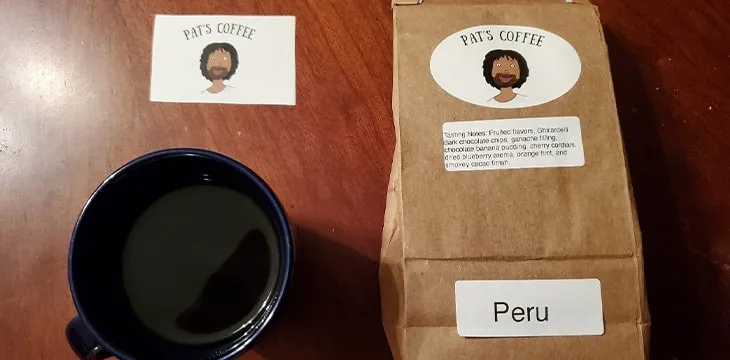|
Getting your Trinity Audio player ready...
|
I finally tried out Pat’s Coffee from fellow CoinGeek author and friend Patrick Thompson. Patrick accepts Bitcoin SV as a method of payment, so I decided to use my HandCash Bitcoin wallet to pay for the goods and shipment. As an online merchant, Pat’s Coffee has a strong incentive to accept irreversible, low fee transactions online instead of credit cards. The only current disadvantage is the price volatility, which has moved down since this transaction took place.
I can pay for goods via a fully private, P2P transaction on $BSV that has 20x lower fee rate (a grand total of 47 satoshis) than $BCH, but somehow #BCH is the 'best p2p cash that scales for the entire world'https://t.co/cAo87lD9Cu
— shua (@cryptoAcorns) July 11, 2022
The above transaction only cost 47 satoshis, around 3/1000ths of a penny at $50 BSV. This is enabled by the fee rate on BSV dropping by 20 times to 0.05 satoshis per byte over the last two years, offering by far the lowest fees of any proof-of-work (PoW) blockchain. Note that the fee would have been even cheaper if the transaction was executed with less coins (UTXOs) spent. However, 2 UTXOs were split into 18 to preserve privacy, leveraging HandCash’s Output Bills technique.
Note that actual transaction amount is hidden by this technique, (a bag of coffee does not cost $25…yet—more on that later) so was this even the transaction I used to pay?
I could have just picked a random transaction from the blockchain and asserted it as my own and no one would be able to call me out on it, except Patrick himself. However, he has no incentive to do so!

Can someone prove this transaction was mine? Can they prove that the transaction resulted in income for Patrick? I would like someone to explain why this level of privacy is not sufficient to justify the existence of Taproot, Mimble-wimble, or Monero?
Even if you can prove this transaction took place between us, how much was sent to Patrick, and how much was spent as change back to myself? How would one unilaterally tell how much sales tax is owed, or how much income tax Patrick owes? Is this even a taxable transaction? If so, only myself and Patrick know, thus is our responsibility to report as so.
The key is “not to add complexity, but to use it as it was originally designed.” Bitcoin has this ability from January 3, 2009. However, when you limit the block size, the transaction size and remove script, then this type of transaction is not possible. Arbitrary limitations enable developers to make themselves more important, and all of their recommended solutions are unnecessary and add complexity.
Given the economic conditions the world faces, returning to this means of transacting is more important than ever. Inflation is out of control; supply chains are in disarray and food supplies are artificially being destroyed ad nauseum. These conditions demonstrate that the current governments and institutions are failing. The only ones who are going to help ourselves are ourselves and we need to start doing so. Peer to peer transactions whether in person, or over the Internet keeps money flowing between consumers and producers and enriching ourselves, while making the miners the middlemen for settlement instead of the corrupt financial institutions.
It is almost as if someone told us about this 14 years ago…
Watch: BSV Global Blockchain Convention presentation, LiteClient: Scaling Blockchain with Simplified Payment Verification
https://www.youtube.com/watch?v=-j9Kvvm2xxc

 06-30-2025
06-30-2025 





